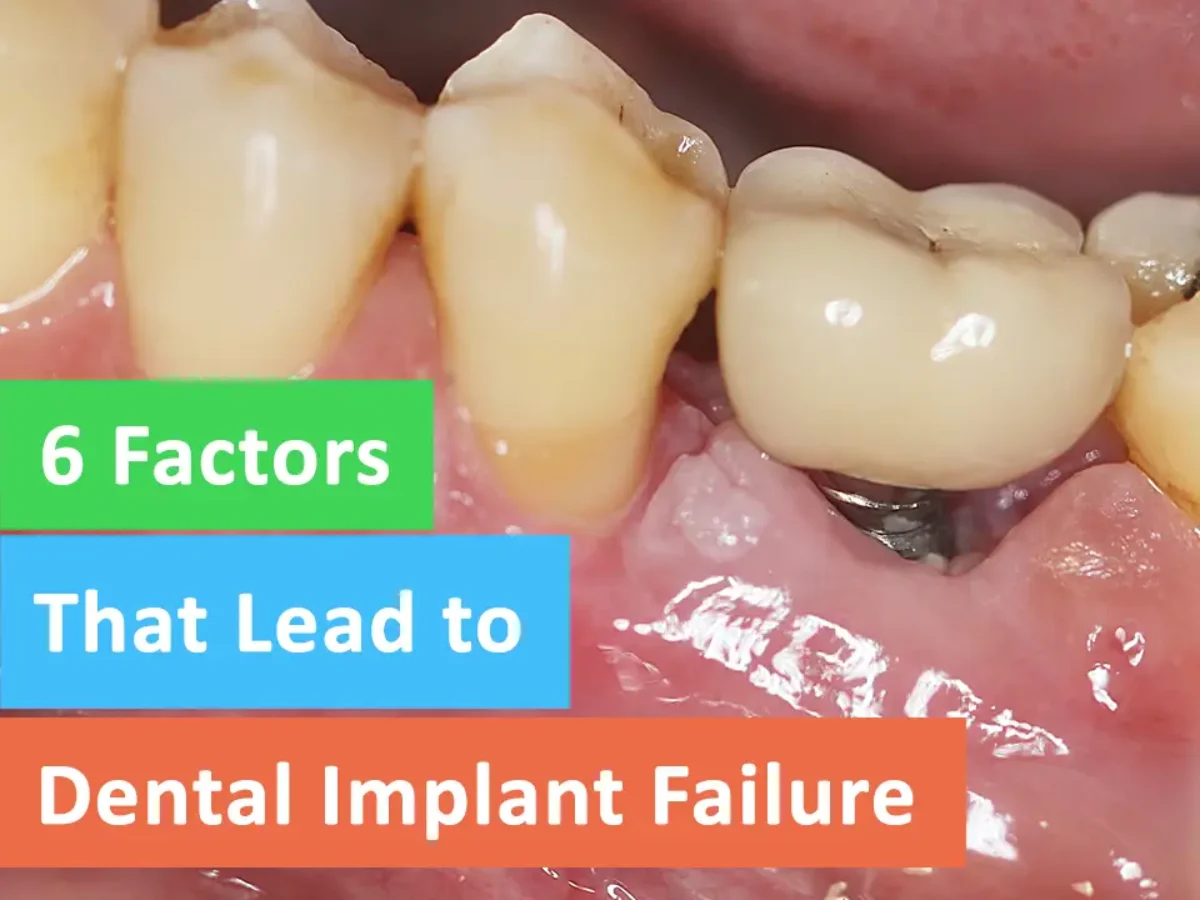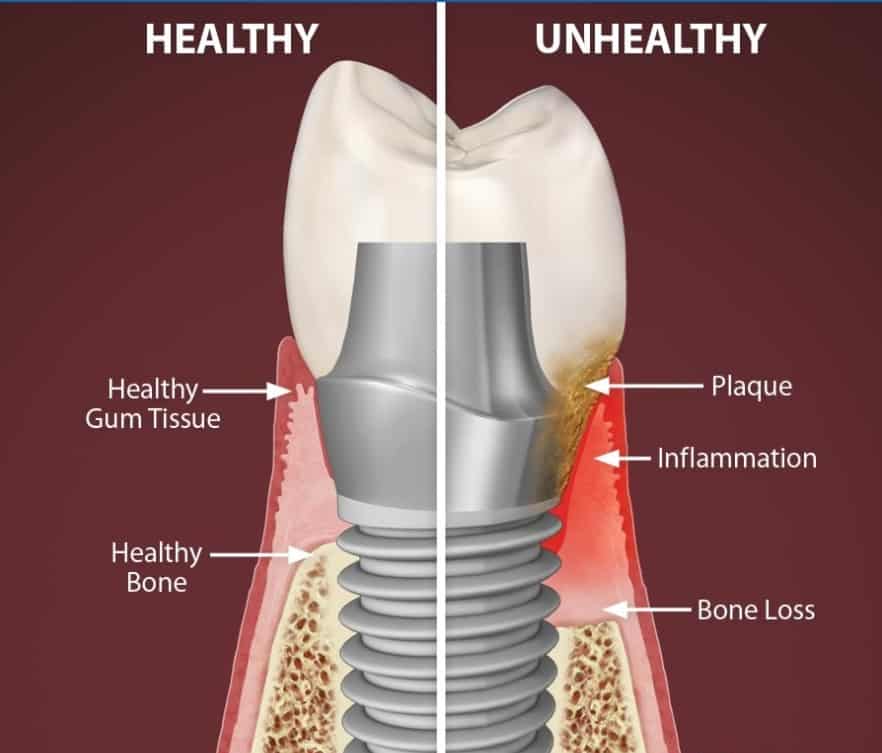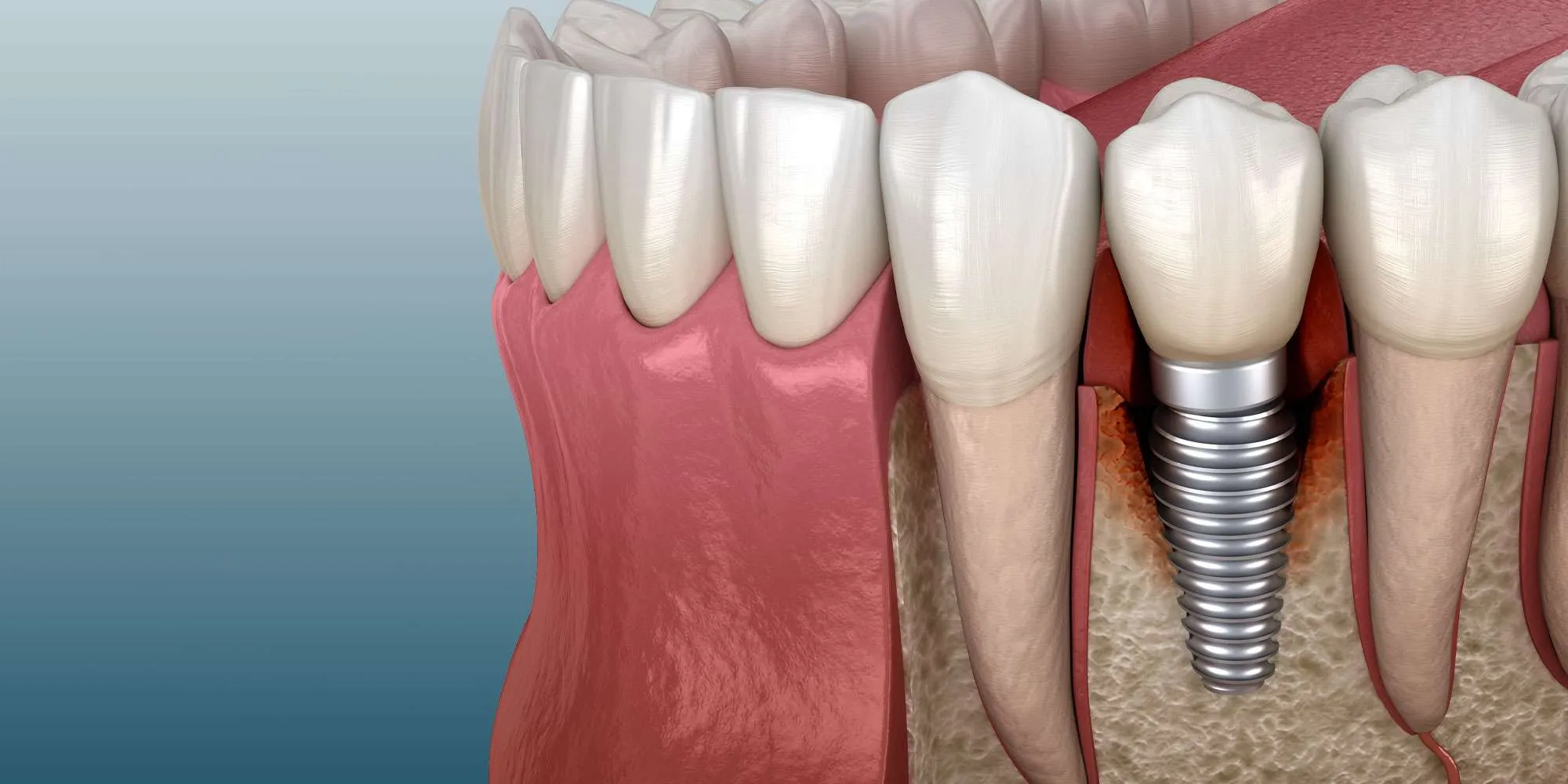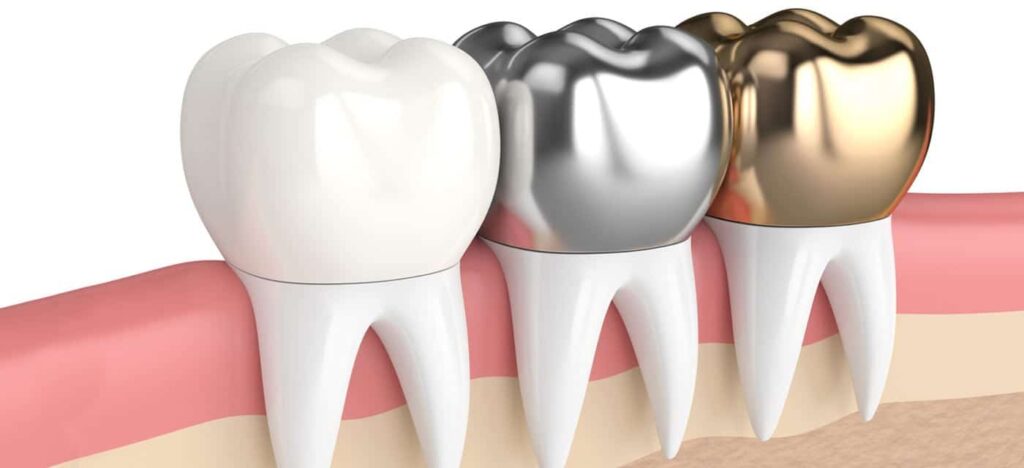
Dental implants are usually safe and effective dental procedures for teeth replacement. However, dental implant failure can likely happen. There are various reasons why dental implants fail. But, there are ways to prevent that from happening. This blog will guide you through the reasons for dental implant failure and ways to avoid it.
Can Dental Implants Fail?
Dental implants are the most effective and reliable solution for missing teeth. It is a surgical procedure that lets individuals restore their natural teeth’ look and functionality. While they offer numerous benefits, there is still a risk of failure.
Tooth implant failure occurs when dental implants fail to fuse into the jawbone properly. There are various signs of failure like loose implants, difficulty in chewing or speech, gum inflammation, infection, swelling, pain, etc. These signs indicate that the implant has failed to adjust properly into the jawbone and surrounding tissues.
Reasons for Dental Implant Failure

The implant procedure is a huge investment. It requires abundant time and money to achieve success. However, many factors may contribute to the failure and you should be aware of all. Therefore it is vital to know all the causes of dental implant failure. Here are the reasons for dental implant failure:
Misalignment of dental implant
The alignment of an implant in the oral cavity plays a key role in its successful fusion in the jawbone. If the implant does not sit properly in the bone, the metallic part appears. It may also lead to gum recession which can lead to implant failure as the implant loses its strength due to lack of tissue to support it. It is the responsibility of the dentist to make sure of the accurate implant placement to avoid failure in the future.
Poorly Taken Impressions
Dental Implants work exactly as natural teeth due to their built design and material. To create accurate implants that suit your natural teeth’ design and size, it is important to take correct impressions.
Poorly taken impressions can cause ill-fitted replacement teeth that loosen the grip of the implant. It does not let the implant fuse properly into the jawbone. The metallic part stays visible. Moreover, the ill-fitted dental implant may cause gum recession, friction with the tissues, and wounds that can lead to infections. Therefore, dentists should work properly while taking impressions of jawbone, teeth, and gums.
Peri Implantitis and other Infections
Peri Implantitis is a medical condition of inflammation around the gums and teeth due to bacterial growth. It is likely to happen around the dental implant due to several reasons, such as poor oral hygiene routine and lack of maintenance. Due to this condition, the gum and jawbone surrounding the implant get weak and damaged. It increases the risk of implant failure. This reason of dental implant failure usually occurs due to excessive drinking, smoking, and poor oral hygiene. Therefore, individuals with dental implants should take good care of their oral health to prevent infections.
Failed Osseointegration

Osseointegration is the process of successful fusion of implant into the jawbone. It provides stability to the implant. However, various elements like insufficient bone density and health issues may lead to failed osseointegration. Therefore, dentists recommend bone grafting or sinus lift to some patients before dental implant. Thus, to prevent dental implant failure, you must check on your dentist with additional processes like bone grafting or sinus lift for successful integration.
Nerve Damage
A dental implant is a surgical procedure. It includes the risk of nerve damage during surgery. If a nerve gets damaged during the operation, it leads to tingling, numbing, infection, pain, and irritation around the implant area. Due to this, the inflammation increases and the situation may get critical.
Implant Itself
To match the exact size and functioning of your natural teeth, the dentist requires careful inspection. There are varying qualities and types of implants. Thus, the patients must consult carefully about the implant types, budget, quality, and sizing for successful treatment. A poor quality implant, incorrect size, and one that does not meet safety regulations is likely to cause dental implant failure.
Allergic reaction
Though rarely, some patients may be allergic to the materials used in the implant. Therefore, it is vital to identify any potential allergies before starting the procedure.
How to Prevent Dental Implant Failure?
With a high success rate of dental implants, there are still likely risks of failure. However, the risks are avoidable. There are some preventable measures that you can take like:
- Choose a skilled dental expert with certified proven experience. Please choose the best dental clinic near me
- Proper treatment consultation
- Properly taken impressions of the jawbone and gums.
- High-quality implants
- Avoid smoking and drinking
- Maintain a good oral hygiene routine
- Follow aftercare instructions
- Consider additional processes like bone grafting or sinus lift
- Take prescribed medicines
- Stick to soft foods initially
FAQs
How to know if a dental implant is rejecting?
You should identify the early signs of dental implant failure which are extreme pain, swelling, infection, swollen gums, and difficulty in chewing and speech.
How common is dental implant failure?
Dental implants are usually a successful dental treatment procedure. However, there are chances of failure due to inappropriate surgical processes, low-quality implants, and poor following of after-care instructions. But, the failure is preventable.
Why does my tooth implant hurt after 3 months?
Inflammation, infection, poor osseointegration of the implant, and other factors may lead to a hurtful tooth implant after a few months. It is due to failed infusion of the implant into the jawbone.
Can a failing dental implant be fixed?
It is vital to keep an eye on the initial symptoms of dental implant failure. Be careful and pay regular visits to the dentists so they can inspect the fusion of the implant in the jawbone. If there is a chance of dental implant failure, dentists may work their way to prevent it and address the issue.



